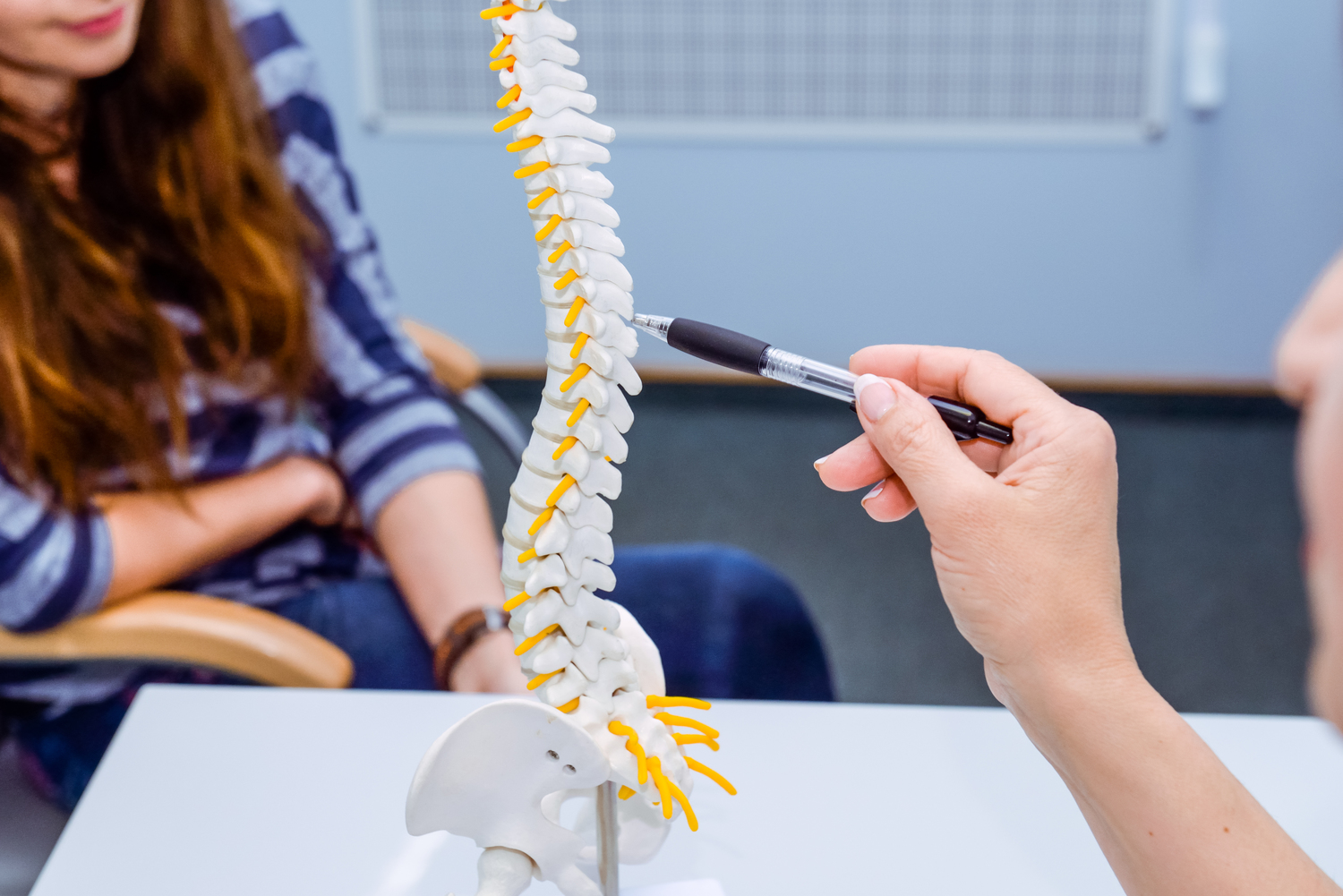An Overview Of Osteoporosis- Risk Factors, Symptoms, And Treatments

An overview of osteoporosis- risk factors, symptoms, and treatments
Osteoporosis is a disease where the bones become fragile, weak, and brittle because of the loss of bone mass and a loss of bone tissue. A “silent disease”, osteoporosis affects an individual silently because he/she doesn’t realize their bones are getting weaker. It is only noticed when a bone breaks. If one has osteoporosis, then there are more chances of a bone fracture, especially, in the spine, the wrists, and the hips.
Bones undergo a constant state of renewal, i.e., new bones are made and the old bones break down. In youth, the body makes new bones faster than it breaks down the old ones, increasing your bone mass. By early 20s, most individuals reach their peak bone mass. However, as people age, the loss of bone mass is faster than its creation. The likeliness of developing osteoporosis partly depends on how much bone mass is attained in the youth. The higher the peak bone mass in youth, the less likely are the chances of developing osteoporosis with age.
Below is some information about the risk factors for osteoporosis, its symptoms, treatment options, and more.
What are the risk factors of osteoporosis?
Several factors increase an individual’s risk of developing osteoporosis, these factors include:
- Unchangeable risks – Women more than men are more likely to develop osteoporosis. Aging increases the risk of this ailment. Individuals belonging to a white or Asian descent are at the greatest risk of osteoporosis. Having a sibling or a parent suffering from osteoporosis puts an individual at a higher risk, especially, if one of the parents experienced a hip fracture. Individuals having a small body frame are at a higher risk as they might have a lesser bone mass to draw from as they age.
- Hormones – Having too much or too little of certain hormones in the body increases the risk of suffering from osteoporosis. Low estrogen levels in women at menopause create the strongest risk for them to develop this condition. Treatments for prostate cancer reduce the testosterone levels in men which accelerates the bone loss, thus, increasing the risk of osteoporosis. Breast cancer treatments tend to reduce the estrogen levels causing the same effect on women. In case of an overactive thyroid or taking too much of the thyroid hormone for treating an underactive thyroid causes bone loss. An overactive parathyroid and adrenal glands can also cause osteoporosis.
- Diet – People with low calcium intake are at a risk of developing osteoporosis. Having eating disorders can cause this ailment.
- Medications and medical conditions – Osteoporosis is associated with certain medicines used for treating seizures, gastric reflux, transplant rejection, and cancer. Using injected or oral corticosteroids for a long time can interfere with the process of bone rebuilding. The risk of osteoporosis is higher in individuals who have medical conditions like the Celiac disease, rheumatoid arthritis, inflammatory bowel disease, etc.
- Lifestyle – Certain lifestyle habits can increase the risk of osteoporosis in an individual these include leading a sedentary life, smoking, and drinking a lot.
What are the symptoms of osteoporosis?
The symptoms of osteoporosis usually develop very slowly. There will not be many external symptoms that will help in diagnosing the problem in the early stage. However, certain signs and symptoms to look out for are:
- Fracturing of the bones more easily than expected.
- Back pain because of a collapsed vertebra or a fracture.
- A stooped posture.
- A decrease in the height over a period of time.
How is osteoporosis treated?
A wide range of treatment options is available for osteoporosis. Once a patient is diagnosed with this health condition, the doctor works with the patient to devise a treatment plan. The treatment plan would include:
- Medication -Drugs commonly used for treating osteoporosis are called bisphosphonates. These drugs are administered to prevent the loss of bone mass. They can be taken by injection or orally. Bisphosphonates include zoledronic acid (Reclast), alendronate (Fosamax), and ibandronate (Boniva). Other medications used to prevent loss of bone mass or stimulate the growth of bones are testosterone, calcitonin-salmon (Fortical and Miacalcin), raloxifene (Evista), teriparatide (Forteo), denosumab (Xgeva or Prolia), and hormone therapy.
- Lifestyle changes – Certain lifestyles changes need to be made along with taking medicines for treating osteoporosis. These changes include following an appropriate diet that helps in strengthening the bones. The patient’s diet must include important nutrients like calcium, vitamin D, vitamin K, proteins, magnesium, and zinc. Apart from diet, exercising regularly is also essential. It should include weight-bearing exercises like climbing stairs, resistance training, etc.
- Natural treatments – As medications for treating osteoporosis may be accompanied by certain side effects, a patient may also consider natural treatment options. Supplements like black cohosh, red clover, and soy can help in promoting bone health as well as ease the symptoms associated with this health condition. However, it is important to consult a doctor before starting any supplements.
How can osteoporosis be prevented?
Many risk factors for osteoporosis are out of an individual’s control. However, certain factors can be controlled. Some of the best preventive measures one can take for avoiding this health condition are:
- Quit smoking.
- Exercise regularly, especially, weight-bearing exercises should be performed often.
- Get plenty of vitamin D and calcium.



